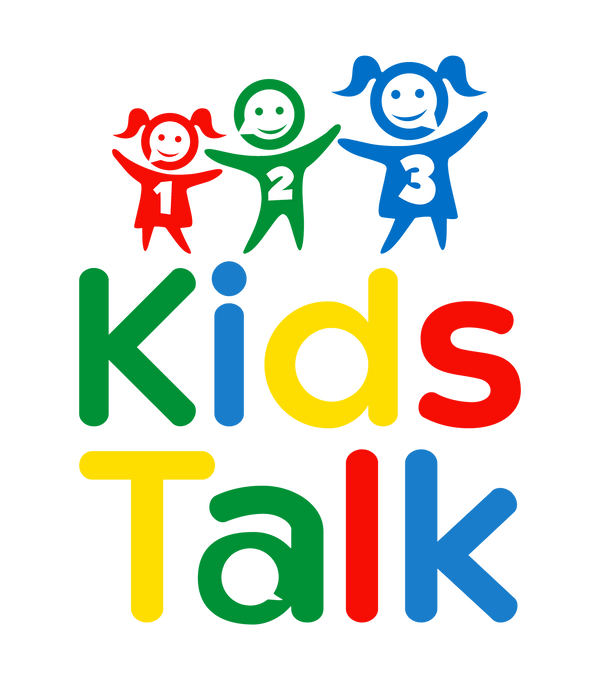Tiny Feelings, Big Impact.
Why Social-Emotional Learning is Key for Your Toddler's Success
Discover why social-emotional learning (SEL) is crucial for toddlers aged 1-3 and learn how to nurture your child's emotional intelligence and set them up for lifelong success.
Introduction
As parents, we often focus on our toddlers' milestones like first words and steps. But did you know that their emotional and social development is just as important? Social-emotional learning (SEL) is the foundation for healthy relationships, self-regulation, and future academic success. In this blog post, we'll explore why SEL matters for your little one and share practical tips to foster their emotional intelligence.
What is Social-Emotional Learning (SEL)?
SEL is the process of developing the skills to:- Understand and manage emotions: Recognizing feelings like happiness, sadness, and anger.
- Build relationships: Learning to share, take turns, and cooperate with others.
- Make responsible decisions: Choosing how to act in different situations.
- Show empathy: Understanding and caring about how others feel.
Why SEL Matters for Toddlers (1-3 years):
Brain Development: The early years are a critical period for brain development. Nurturing SEL skills during this time lays the groundwork for emotional well-being and resilience.
School Readiness: Research shows that children with strong SEL skills are better prepared for school. They can focus, follow instructions, and get along with classmates.
Lifelong Success: SEL skills are essential for building healthy relationships, managing stress, and achieving goals throughout life.
Practical Tips for Fostering SEL in Toddlers:
Name those feelings
Help your child identify and label their emotions. "You seem frustrated that the blocks fell down."
Why it matters:
Toddlers experience a whirlwind of emotions but lack the vocabulary to express them. By labelling feelings (happy, sad, angry, scared), you're giving them the words they need. This helps them understand their internal world and communicate more effectively.
How to do it:
- Narrate their experiences: "You're smiling so big! You must be happy."
- Use visual aids: Point to pictures of faces showing different emotions and talk about them.
- Validate their feelings: "It's okay to feel angry. Let's take a deep breath together."
Be a role model
Show your child how you manage your own emotions. "I'm feeling a little overwhelmed, so I'm going to take a deep breath."
Why it matters:
Children learn by watching the adults in their lives. When you model healthy emotional expression and coping mechanisms, you're teaching them invaluable life skills.
How to do it:
- Talk about your feelings: "Mommy is feeling a little sad today, but it's okay."
- Show how you calm down: "I'm going to take a break and listen to some music to feel better."
- Apologize when you make mistakes: "I'm sorry I yelled. I was frustrated, but that wasn't the right way to handle it."
Read stories together:
Choose books that explore different emotions and social situations.
Why it matters:
Books are a wonderful way to introduce children to a wide range of emotions and social situations in a safe and relatable way.
How to do it:
- Choose age-appropriate books: Look for stories with simple plots and expressive illustrations.
- Ask questions: "How do you think the character feels? What would you do if you were them?"
- Connect to real life: "Remember when you felt like the little bear who lost his toy?"
Encourage playdates:
Provide opportunities for your child to interact with other children.
Why it matters:
Interacting with peers is essential for developing social skills like sharing, taking turns, and resolving conflicts.
How to do it:
- Start with short, structured playdates: Keep the group small and have a few planned activities.
- Supervise and support: Be present to help children navigate social interactions and resolve disagreements.
- Gradually increase complexity: As your child gets older, encourage more independent play with peers.
Practice problem-solving:
Help your child find solutions when conflicts arise.
Why it matters:
Toddlers encounter countless little problems throughout the day. By helping them find solutions, you're building their resilience and confidence.
How to do it:
- Break down the problem: "What's wrong? Why are you upset?"
- Brainstorm solutions together: "What could we do to make it better?"
- Let them try their ideas: Even if it doesn't work perfectly, they'll learn from the experience.
Celebrate small victories:
Praise your child for showing empathy or managing their emotions.
Why it matters:
Positive reinforcement helps children understand what behaviours are valued and encourages them to repeat them.
How to do it:
- Be specific: "I love how you shared your toy with your friend."
- Focus on effort: "You tried really hard to calm down when you were angry."
- Use encouraging words: "You're such a kind and helpful friend."
123 Kids Talk and SEL
At 123 Kids Talk, we understand the importance of social-emotional learning. Our Playgroup Programs and Chatter Boxes are designed to foster SEL skills through play-based activities. We provide a safe and supportive environment for toddlers to explore their emotions, build relationships, and develop the skills they need to thrive.
Conclusion
Investing in your toddler's social-emotional learning is one of the greatest gifts you can give them. By nurturing their emotional intelligence, you're setting them up for a lifetime of happiness, success, and meaningful connections.
Are you ready to give your child a head start in life? Join our 123 Kids Talk Playgroup Programs or explore our Chatter Boxes today!

